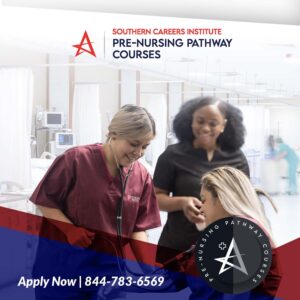Whether you\’re looking to enter a new career path or simply expand your horizons for personal reasons, most people can benefit from lifelong learning. But what exactly is lifelong learning?
How does one continue their learning? What makes a lifelong learner? And what are the benefits of lifelong learning? Is it worth the time spent on it?
Understanding the concept of lifelong learning will help you understand how it can help just about anyone for a variety of reasons. No matter what topic you choose to pursue, lifelong learning has many benefits and advantages.
What Makes a Lifelong Learner?
To understand how lifelong learning works, it\’s important to define the skills needed for it. It was renowned management expert Peter Drucker who said,\” \”We now accept the fact that learning is a lifelong process of keeping abreast of change.\”
The importance of lifelong learning cannot be understated. Lifelong learning can be for either personal or professional reasons. It can be to advance in a career path.
It can also be intended for personal fulfillment.
So, exactly what is lifelong learning? The definition of lifelong learning is that a person will seek education opportunities for the entirety of their life. That means learning beyond the years one might typically attend school.
The significance is more about exploring the learning process than it is about the knowledge gained. It\’s about the journey, not the destination. Lifelong learners are curious by nature, often looking to find out more about topics that interest them.
What Is An Example of Lifelong Learning?
The characteristics of lifelong learning could include reading books or blogs on topics that interest you. Another characteristic of a lifelong learner is the desire to take courses to learn a skill or subject the person didn’t previously learn.
Lifelong learning skills don\’t necessarily correlate to intelligence. It\’s more about a desire and a passion to push your own personal limits.
Examples of lifelong learning activities could include frequent trips to a bookstore or library or even signing up for classes. It could mean taking an online class remotely. These don\’t have to be tied to any kind of tangible goal that you profit from. It can simply be learning for learning\’s sake.
Lifelong learners can be young students. They could be active professionals, in the midst of their careers or retirees. It is a habit and skill set that extends beyond age range or other demographics.
It can apply to people currently working in one position, looking to improve their standing within their field. In some professions, it\’s a part of the job. Nursing is one profession where lifelong learning is expected.
Why is Learning Important For Success?
Taking on the qualities of a lifelong learner is vital for your success, no matter what you\’d like to be successful at. Everyone can benefit from it.
It can help you develop new skills in your current job that could help you get a raise or move up in your organization. If you look to learn something outside your profession, it can help you jump from one industry to another possibly more lucrative industry.
It can also help in a more abstract sense. Lifelong learning can help you become a generally more well-rounded and well-read individual. This could give you more to discuss with colleagues in your field, leading to more networking opportunities.
There are no disadvantages to lifelong learning. Even if you spend your time learning about a topic unrelated to your career, the learning skills you build can help you in other areas as well.
What Are The Benefits of Learning?
The benefits of learning are obvious: they can lead to more professional opportunities. But have you ever considered the skills you build while learning? These too are beneficial.
The aims of lifelong learning are not just to learn the information you\’re studying at the time. They\’re also to develop better learning habits. The more you train your mind to learn, the more effective you\’ll become at learning and retaining information.
These can apply to practical skills as well as general knowledge. The more you can learn, the more you can improve the way in which you process information. The more you do this, the more opportunities you\’ll find available to you both personally and professionally.
Additionally, even if you\’ve already pursued one profession, you can turn your love of learning into a side project and, eventually, your primary income source. If there\’s a skill or trade you\’ve wanted to learn for years, why put it off? It\’s never too late to dive into a subject you enjoy and then turn it into a career.
Summary
No matter what stage of life you\’re in, lifelong learning can help improve your quality of life. It can help you expand your professional horizons. It can also help you develop a new hobby that brings you endless enjoyment.
It can also help you fulfill a challenge. There\’s a lot of satisfaction that comes with setting a goal, self-motivating yourself to finish it, and then achieving it. The characteristics of pursuing lifelong education involve possessing a burning desire to know and do more about topics you\’re passionate about.
You can also use it to help people. Many articles will tell you to follow your passion, and that\’s not wrong. But if you can find activities that fall within the nexus of something you\’re passionate about and something other people need, then you can really find a profitable venture – or maybe just give back to others. It\’s up to you.
Southern Careers Institute can give you an outlet for your desire for lifelong learning. SCI has courses and programs available to set you up for jobs in business, beauty, medical fields, technology or skilled trades. These aren\’t just topics with a lot of interesting information to learn, they\’re also ones you can make a new career path out of if you so desire.
SCITexas.edu has the ability to help you with your transformation to a new you. Get help igniting your passion for change by contacting us today!
Sources
https://blog.ed.gov/2017/09/lifelong-learning-roadway-success/
https://www.ncbi.nlm.nih.gov/pmc/articles/PMC5718860/
Blog Disclaimer: Information stated in this blog is for general information purposes only. SCITexas.edu not assume or guarantee income earning potential or salary expectations based on the programs offered at Southern Careers Institute.











